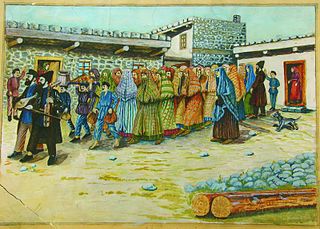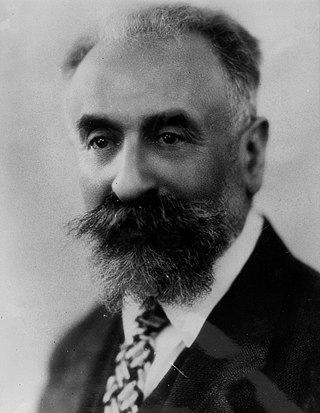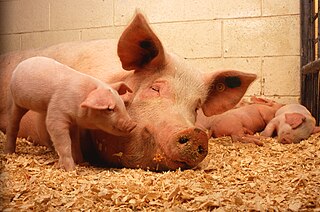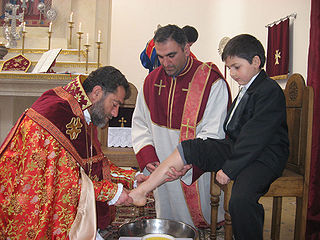Related Research Articles

David Émile Durkheim was a French sociologist. Durkheim formally established the academic discipline of sociology and is commonly cited as one of the principal architects of modern social science, along with both Karl Marx and Max Weber.

In sociology, anomie is a social condition defined by an uprooting or breakdown of any moral values, standards or guidance for individuals to follow. Anomie is believed to possibly evolve from conflict of belief systems and causes breakdown of social bonds between an individual and the community. An example is alienation in a person that can progress into a dysfunctional inability to integrate within normative situations of their social world such as finding a job, achieving success in relationships, etc.

Anthropology of religion is the study of religion in relation to other social institutions, and the comparison of religious beliefs and practices across cultures. The anthropology of religion, as a field, overlaps with but is distinct from the field of Religious Studies. The history of anthropology of religion is a history of striving to understand how other people view and navigate the world. This history involves deciding what religion is, what it does, and how it functions. Today, one of the main concerns of anthropologists of religion is defining religion, which is a theoretical undertaking in and of itself. Scholars such as Edward Tylor, Emile Durkheim, E.E. Evans Pritchard, Mary Douglas, Victor Turner, Clifford Geertz, and Talal Asad have all grappled with defining and characterizing religion anthropologically.

Ritual purification is a ritual prescribed by a religion through which a person is considered to be freed of uncleanliness, especially prior to the worship of a deity, and ritual purity is a state of ritual cleanliness. Ritual purification may also apply to objects and places. Ritual uncleanliness is not identical with ordinary physical impurity, such as dirt stains; nevertheless, body fluids are generally considered ritually unclean.
Cleanliness is both the state of being clean and free from germs, dirt, trash, or waste, and the habit of achieving and maintaining that state. Cleanliness is often achieved through cleaning. Culturally, cleanliness is usually a good quality, as indicated by the aphorism: "Cleanliness is next to Godliness", and may be regarded as contributing to other ideals such as health and beauty.
A niddah, in traditional Judaism, is a woman who has experienced a uterine discharge of blood, or a woman who has menstruated and not yet completed the associated requirement of immersion in a mikveh.

Marcel Mauss was a French sociologist and anthropologist known as the "father of French ethnology". The nephew of Émile Durkheim, Mauss, in his academic work, crossed the boundaries between sociology and anthropology. Today, he is perhaps better recognised for his influence on the latter discipline, particularly with respect to his analyses of topics such as magic, sacrifice and gift exchange in different cultures around the world. Mauss had a significant influence upon Claude Lévi-Strauss, the founder of structural anthropology. His most famous work is The Gift (1925).

In some religions, an unclean animal is an animal whose consumption or handling is taboo. According to these religions, persons who handle such animals may need to ritually purify themselves to get rid of their uncleanliness.

In Judaism, ritual washing, or ablution, takes two main forms. Tevilah (טְבִילָה) is a full body immersion in a mikveh, and netilat yadayim is the washing of the hands with a cup.

Dame Mary Douglas, was a British anthropologist, known for her writings on human culture, symbolism and risk, whose area of speciality was social anthropology. Douglas was considered a follower of Émile Durkheim and a proponent of structuralist analysis, with a strong interest in comparative religion.

There are many cultural aspects surrounding how societies view menstruation. Different cultures view menstruation in different ways. The basis of many conduct norms and communication about menstruation in western industrial societies is the belief that menstruation should remain hidden. By contrast, in some hunter-gatherer societies, menstrual observances are viewed in a positive light, without any connotation of uncleanness.
In Jewish religious law, ṭumah and ṭaharah are the state of being ritually "impure" and "pure", respectively. The Hebrew noun ṭum'ah, meaning "impurity", describes a state of ritual impurity. A person or object which contracts ṭumah is said to be ṭamé, and thereby unsuited for certain holy activities and uses until undergoing predefined purification actions that usually include the elapse of a specified time-period.
Sacred describes something that is dedicated or set apart for the service or worship of a deity; is considered worthy of spiritual respect or devotion; or inspires awe or reverence among believers. The property is often ascribed to objects, or places.
The Elementary Forms of Religious Life, published by the French sociologist Émile Durkheim in 1912, is a book that analyzes religion as a social phenomenon. Durkheim attributes the development of religion to the emotional security attained through communal living. His study of totemic societies in Australia led to a conclusion that the animal or plant that each clan worshipped as a sacred power was in fact that society itself. Halfway through the text, Durkheim asks, "So if [the totem animal] is at once the symbol of the god and of the society, is that not because the god and the society are only one?"

Purity and Danger: An Analysis of Concepts of Pollution and Taboo is a 1966 book by the anthropologist and cultural theorist Mary Douglas. It is her best known work. In 1991 the Times Literary Supplement listed it as one of the hundred most influential non-fiction books published since 1945.
Kegare is the Japanese term for a state of pollution and defilement, important particularly in Shinto as a religious term. Typical causes of kegare are the contact with any form of death, childbirth, disease, and menstruation, and acts such as rape. In Shinto, kegare is a form of tsumi, which needs to be somehow remedied by the person responsible. This condition can be remedied through purification rites called misogi and harae. Kegare can have an adverse impact not only on the person directly affected, but also to the community they belong to.

Midras uncleanness is one of the forms of ritual impurity in Judaism which can be transmitted by either an object or person. The term may be translated as pressure uncleanness.
Word taboo, also called taboo language, language taboo or linguistic taboo is a kind of taboo that involves restricting the use of words or other parts of language due to social constraints. This may be due to a taboo on specific parts of the language itself, or due to the need to avoid a taboo topic. The taboo against naming the dead in parts of the world is an example. Taboo words are commonly avoided with euphemisms, such as the English euphemism pass away, meaning "die". It is a common source of neologisms and lexical replacement.

Impurity after childbirth is the concept in many cultures and religions that a new mother is in a state of uncleanliness for a period of time after childbirth, requiring ritual purification. Practices vary, but typically there are limits around what she can touch, who she can interact with, where she can go, and what tasks she can do. Some practices related to impurity after childbirth, such as seclusion, overlap with the more general practice of postpartum confinement.

In some denominations of Christianity, there are a number of regulations involving cleanliness before prayer, observing days of ritual purification, as well as those concerning diet and apparel. The Bible has many rituals of purification in areas ranging from the mundane private rituals of personal hygiene and toilet etiquette to the complex public rituals of social etiquette.
References
- Douglas, Mary - Leviticus as Literature (Oxford, 2001, ISBN 0-19-924419-7)
- Douglas, Mary - Purity and Danger: An Analysis of the Concepts of Pollution and Taboo (Routledge, 2002, 0415289955)
- Douglas, Mary - Reading Leviticus: A Conversation with Mary Douglas (Sheffield Academic Press, 1996 ISBN 1-85075-628-7)
- Pickering, W. S. F. - Emile Durkheim III: Critical Assessments of Leading Sociologists series (Routledge, 2000, ISBN 0-415-20560-3)